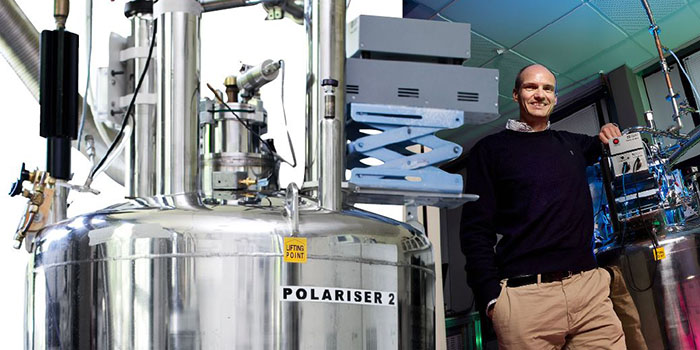Two ERC Synergy Grants to researchers with a connection to the DNRF
Two research teams with a connection to the Danish National Research Foundation are among five recipients from Denmark of this year’s Synergy Grants from the European Research Council (ERC). The grants are given to research groups led by two to four top researchers. Over the next six years, the projects will procure new solutions to big scientific problems. A total of 37 international research projects have received ERC’s Synergy Grants this year; the grants are a part of the EU’s research and innovation program Horizon 2020.

On October 11, 2019, the European Research Council (ERC) published the names of the latest recipients of the so-called Synergy Grants that are a part of the EU’s research and innovation program Horizon 2020. A total of 37 international research projects have received ERC Synergy Grants worth 363 million euros. Out of the 37 research groups, five of them include Danish researchers, and two of the groups include leading researchers with a connection to the DNRF. The two DNRF heads of centers who received a Synergy Grant this year are Professor Jan Ardenkjær-Larsen, head of center at HYPERMAG at the Technical University of Denmark, and Professor Karsten Flensberg, head of center at QDev at the Niels Bohr Institute at the University of Copenhagen.
With the project “Quantum hyperpolarization for ultrasensitive nuclear magnetic resonance and imaging (HyperQ),” Professor Ardenkjær-Larsen, together with researchers from Ulm University, will develop new quantum mechanical software and technologies for hyperpolarization of imagery creation in NMR spectrometry and MR scanning. The researchers’ goal is to strengthen the weak magnetic deviations that are captured by the scanner and to steer these deviations toward the creation of biological and medical images. The project has been granted 9.4 million euros.
Professor Karsten Flensberg and the rest of the research team from QDev and researchers from Lund University have received 9,9 million euro for the project “Foundations of nonlocal and nonabelian condensed-matter systems (NONLOCAL).” The project will attempt to confirm whether a special particle, called the Majorana particle, has the qualities that researchers believe it has: that it can store information better than the usual transistors. Confirmation of this theory will have tremendous significance for the development of future quantum computers.
More information about the Synergy Grants can be found in a press release from the ERC here
